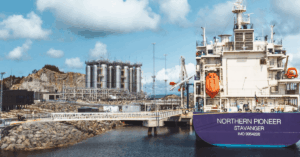
Ukraine Drone Strikes Hit Russia’s Ust-Luga Port, Syzran Refinery, & Nuclear Plant
August 26, 2025
Video: Libyan Coast Guard Opens Fire On Humanitarian Ship Ocean Viking
August 26, 2025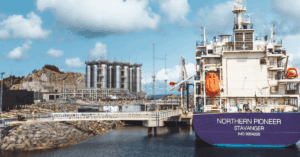
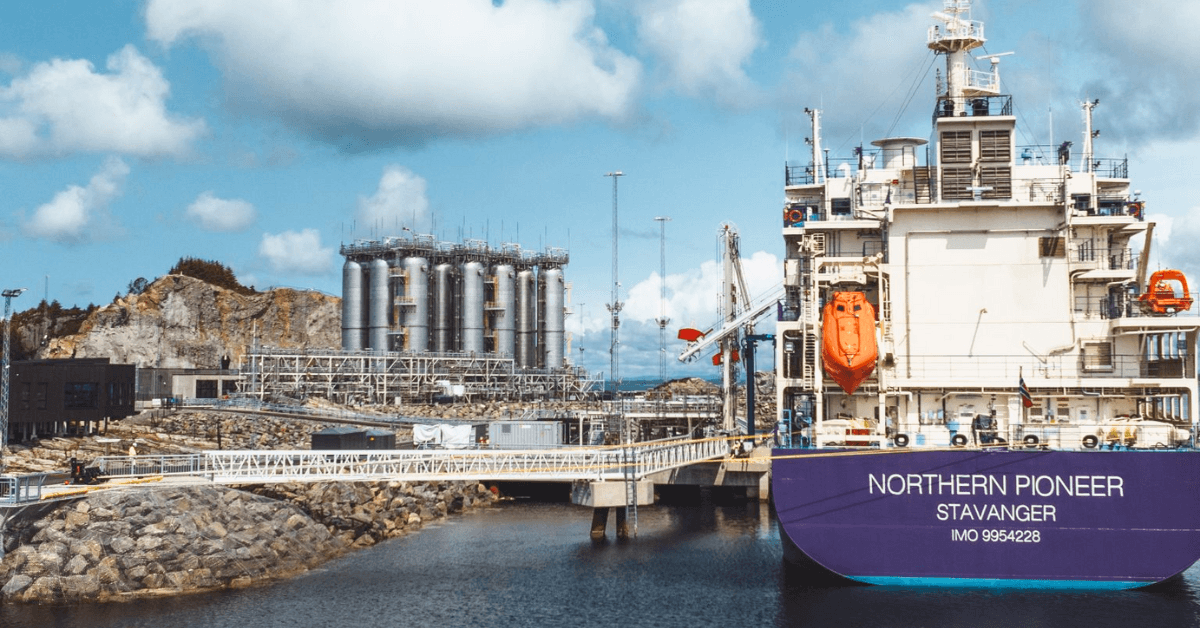
Norway has officially started operations at its Northern Lights carbon capture and storage (CCS) project, with the first volumes of carbon dioxide (CO₂) injected and stored deep beneath the seabed.
The facility, jointly owned by Equinor, Shell, and TotalEnergies, is the world’s first open-access CO₂ transport and storage site for third parties. The CO₂ has been injected into the Aurora reservoir, located about 2,600 meters (8,530 feet) below the seabed in the North Sea.
The stored gas was transported by ship from Heidelberg Materials’ cement factory in Brevik, southern Norway. After arriving at the Øygarden facility, the CO₂ was first unloaded into onshore tanks and then transferred through a 100-kilometer (62 miles) pipeline before being injected into the reservoir.
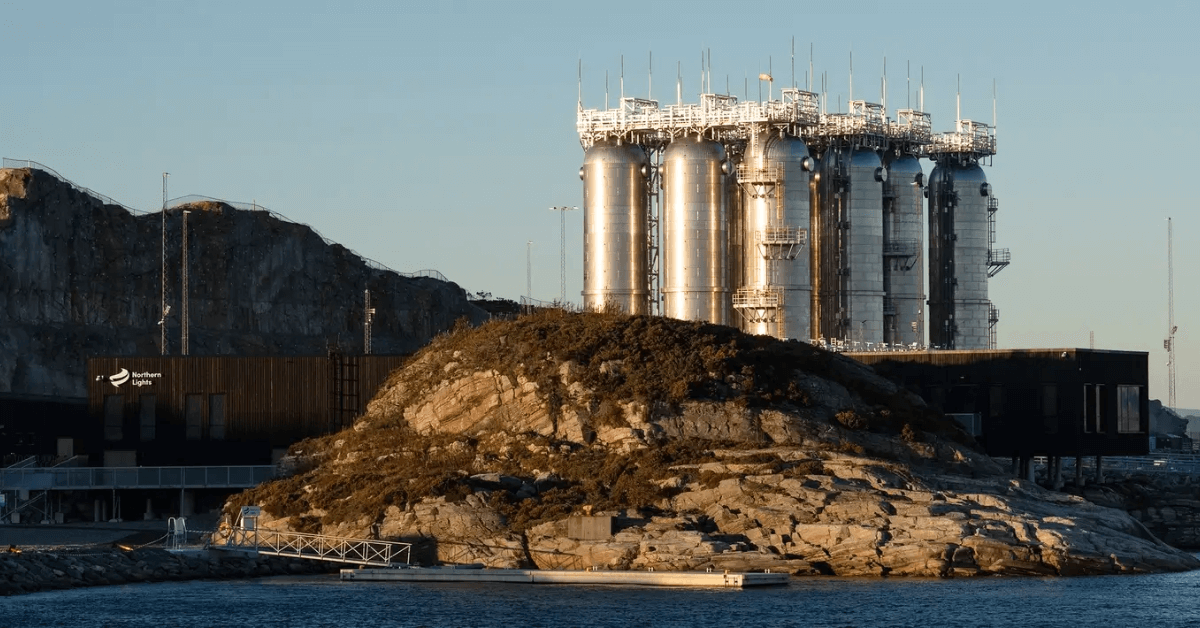
Equinor’s CEO Anders Opedal said the project showed that carbon capture, transport, and storage could be scaled into a full industry. He added that support from the Norwegian government, along with close cooperation between the companies, had made it possible to take the project from concept to reality.
The Northern Lights facility is part of Longship, a Norwegian state-funded CCS initiative aimed at helping industries that are difficult to decarbonise, such as cement, to cut emissions.
Equinor, serving as the Technical Service Provider (TSP), has overseen the construction of both the Øygarden onshore site and the offshore facilities on behalf of the joint venture. The company will also take responsibility for operating the CO₂ plant.
According to Equinor’s Executive Vice President Irene Rummelhoff, the project proves that creating new value chains for CO₂ storage requires cooperation across governments, industries, and customers.
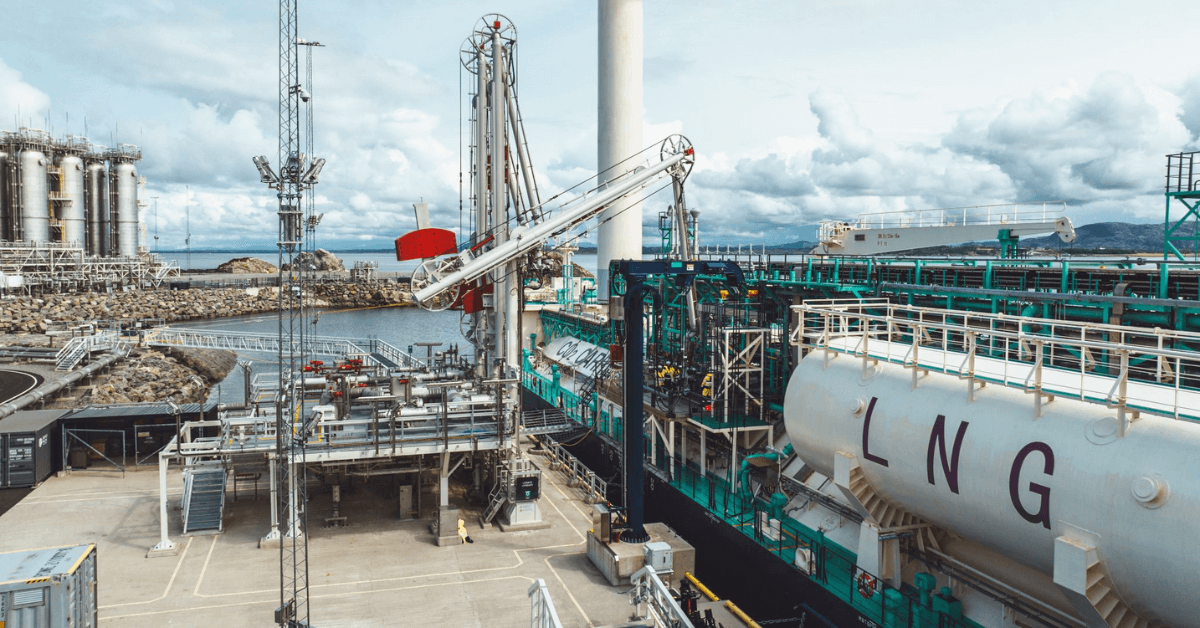
The start of injections completes Phase 1 of Northern Lights, which gives the site a total capacity of 1.5 million tonnes of CO₂ per year (mtpa), or 37.5 million tonnes over 25 years. This capacity is already fully booked.
In March, the owners approved a 7.5 billion Norwegian crowns ($743.93 million) investment for Phase 2, which will expand the facility’s capacity to at least 5 million tonnes per year. The expansion will add new storage tanks onshore, a jetty, and more injection wells.
A key part of Phase 2 is an agreement to transport and store up to 900,000 tonnes of CO₂ annually from Stockholm Exergi in Sweden. The expansion is supported by the Connecting Europe Facility for Energy (CEF Energy) funding scheme.
Nine new CO₂ storage tanks were delivered to the Øygarden site this summer, marking progress in this phase.
Reference: equinor
Source: Maritime Shipping News


